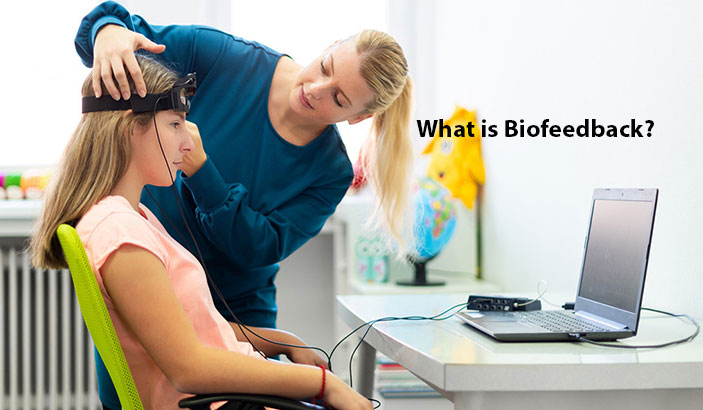Mental health cases have been on the rise in the recent years. Today, 77% of the global population are so stressed out that their physical health is negatively impacted. It can sometimes be challenging to juggle between our jobs, school, and family commitments. Although moderate amounts of stress may benefit us, too much of it can trigger anxiety disorders, depression and a host of other mental health problems.
Over the years, humans have developed many coping techniques in an effort to reduce their stress levels. We have the ability to listen to our bodies and manipulate our physiological functions in order to achieve some desired result, a process known as biofeedback.
Biofeedback: An In-Depth Explanation
So, what exactly is biofeedback and how does it help us improve overall health? Well, biofeedback relies on certain instruments and technologies to measure muscle activity, brainwaves, skin temperature and other physiological activities with the aim of creating an accurate feedback loop. Once we get sufficient information about our biological functions, we can then manipulate these processes as we wish. With rapid advancements in technology, scientists have created sophisticated equipment such as electromyographs and electrocardiograms to collect precise feedback information that can help boost patients’ health and overall wellbeing.
Most body functions such as temperature regulation and heart rate are controlled by our nervous system. However, biofeedback allows us to gain some control over these processes and tweak them at will. Using this therapy, you gain a deeper awareness of what’s happening inside your body and subsequently make the appropriate changes to improve your health. Biofeedback sessions typically involve attaching electrodes or finger sensors onto a patient’s skin/fingers. They detect your breathing rate, heartbeat, muscle activity, blood pressure and other vital body functions. Signals are sent to a monitor that creates an audiovisual display of all your vitals.
Health Benefits Of Biofeedback Therapy
Biofeedback can help manage and treat high blood pressure, migraines, chronic pain and a variety of other health conditions. If you’re stressed, your biofeedback therapist can guide you through different relaxation techniques such as deep breathing and guided imagery to help you calm down. Practicing and fine-tuning these calming exercises over time will help ease muscle tension, slow down your heart rate, improve your breathing technique and more. One of the best perks of biofeedback therapy is its ability to provide an instant evaluation of all your vitals, which allows you to track your progress and make appropriate changes.
There are several types of biofeedback therapy treatments that are used to assess different physiological functions. For instance, electroencephalograph (EEG) biofeedback monitors brain activity and gradually trains the brain to replace negative patterns with healthy ones. This can help treat alcoholism, drug addiction and mental disorders such as ADHD, PTSD, anxiety, personality disorders and autism spectrum disorders. For years, anti-anxiety medications have been widely used to manage anxiety. These drugs have not been as effective as most patients would have hoped for, especially because they have many unpleasant side-effects. Gladly, biofeedback therapy is a noninvasive treatment option that may eradicate the need for such medication, allowing more individuals to feel in charge of their health.









